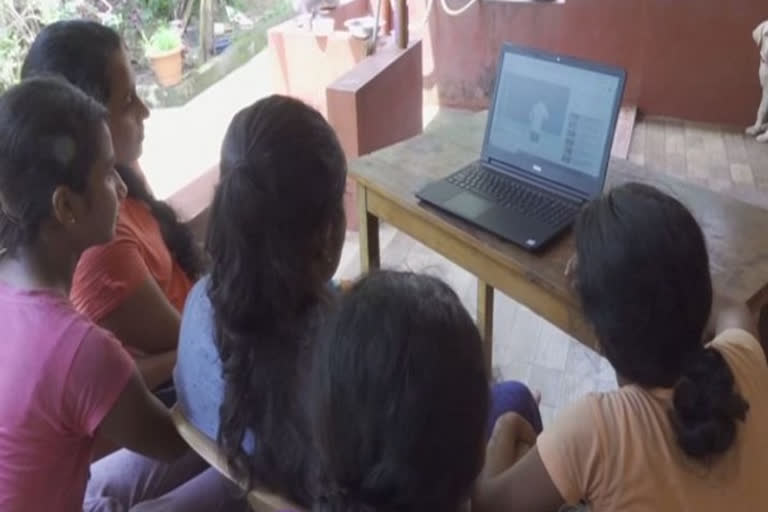Hyderabad (Telangana): COVID-19 has changed the educational system worldwide. Nations are struggling to prepare a foolproof plan for the current academic year. Italy and South Korea took the online classes route while Vietnam and Hong Kong partially reopened their schools. As the cases continue to shoot up, experts believe that schools and colleges in India cannot resume classroom teaching. Both central and state schools finished last year’s curriculum through online classes.
Schools and junior colleges have promoted their students to the next class without any exams. Institutes of higher education are yet to decide their course of action. Though the central and state governments have considered restarting schools and colleges, the reopening dates kept getting postponed. For safe and efficient learning experience, experts recommend a combination of digital and classroom sessions.
Online learning is quite different from traditional learning. Merely following the existing curriculum may not suit the current needs. It is imperative to change the curriculum and lesson plans. Recently, the Education Ministry announced that the Central Board of Secondary Education (CBSE) curriculum would be modified accordingly.
Earlier, Union Minister of Human Resource Development, Ramesh Pokhriyal, said that the Center may reduce the syllabus and instructional hours for the coming academic year. Even the Government of Karnataka is mulling over the reduction of the syllabus for schools. However, there may be downsides to revising the syllabi. Especially in the case of subjects like mathematics and general science, each lesson is interlinked with another.
Students may have difficulty understanding the lessons due to such discontinuity. Education experts must devise a curriculum that suits local needs and meets international standards.
The field of online education is still nascent. Teacher’s physical presence, guidance and encouragement have a great impact on students. There is a lack of student-teacher intimacy in online classes. Without the supervision of instructors, students are less likely to resolve subject related questions.
Teachers find it tough to coordinate all the students at once during digital interactions. In view of these limitations, experts must immediately focus on improving the e-learning platforms. Students must be assigned activities that will enhance their creativity and resourcefulness. These assignments should be carefully graded. In digital education, teacher and student readiness along with a flexible environment are of utmost importance.
Though online classes are being conducted by many universities and schools, there are several socio-economic challenges that tend to get overlooked. While kids in urban areas face no problem with digital tools, their rural counterparts lack access to basic amenities like electricity and the internet.
Hence, the government must focus on facilitating access to internet and tablets for online learning. Students with disabilities are facing altogether different obstacles. Most of the times, they are unable to access the study materials
Universities and educational institutions must keep in mind their challenges and ensure that they participate equally with other students. The Education Ministry must consider using radio and TV broadcasting as education tools.
Though the scope for interaction is zero in these media, lakhs of students can access lessons for free. For a hassle-free online education this academic year, governments, teachers and parents must cooperate with each other and do their part.
Also read: BLA behind PSX attack: Know Balochistan Liberation Army



